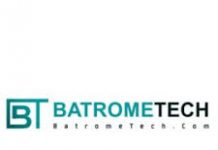Table of Contents
Overview of ICT Companies in Nigeria
Information Technology (IT) is generally closely associated with computers and computer networks, be that as it may, it also comprises of information distribution technologies such as television and telephone communications.
There are a lot of products and services within a particular economy that are affiliated with information technology and some of them include computer hardware, computer software, internet services, electronics, semiconductors, telecomm equipment and e-commerce.
Information Technology (IT) has become widely spread in all countries of the world over the years. Information Technology (IT) encompasses the following; technical support, programmers, web developers, IT security, network engineers, and last but not least, computer systems analysts.

With the latest technological advancement in science and ICT, interested persons/individuals can Learn about ICT systems and usage for ICT GCSE and find out the integration of ICT devices and information systems.
Cisco
Cisco System Inc., commonly called Cisco was incorporated on the 10thDecember, 1984. The company designs and sells various lines of products, provides services and offers integrated solutions to develop and connect networks around the world, building the internet. Cisco manufactures and sells networking based on Internet Protocol (IP) as well as other products associated with information and communications technology. Cisco operates in Africa especially in Nigeria.
Products and technologies of the company are grouped into the various categories like Switching, Next-Generation Network (NGN) Routing, Collaboration, Service Provider Video, Data Centre, Wireless, and Security. Each of the products that have been listed above is integrated by Cisco IOS Software, link local-area networks (LANs) that are dispersed geographically, metropolitan-area networks (MANs) and wide-area networks (WANs). Cisco offers its technology and services to its customers as solutions for their priorities and that includes cloud, video, mobility, analytics, security, and collaboration.
IBM
International Business Machines commonly called IBM is among the world’s largest IT companies and they are into hardware, software and services. It started producing business computers with System/360 which ran the OS/360 operating system.
IBM started off with hardware and over the years it has gone into software-based services. A few of the services and products among which are provided by IBM include server hardware under which are products that offer analytics, blockchain, cloud, and DevOps. IBM provides consulting operations and Global Technology services and they use this to deliver mobility, networking, business continuity, outsourcing and more.
IBM is also behind SmartCloud, a software that it designed to offer cloud services. It also provides analytics software. One popular example is SPSS, others are IBM Cognos Analytics, IBM Maximo Asset Management and DB2.
Microsoft
Microsoft has been operational in Nigeria for quite a long time. The company provides IT services and products including analytics and security. Microsoft is into hardware – Intel processor chips – and providing software products the most obvious one being the Microsoft Windows and Microsoft Office which have both been undergoing tweaks and modifications over the years. Office has applications such as Word, Excel, Powerpoint, and recently, OneNote, Project, Outlook and Visio.
Windows on the other hand kicked off with Windows 95 all the way down to the current Windows 10. Microsoft in the past couple of years replaced its Windows Mobile operating system with Windows Phone OS so as to stand a chance of competing with Apple and Google on the mobile phone operating systems market. Microsoft also designed the Edge browser and Skype.
Checkpoint
Ever since it was first founded, Checkpoint has only been focused on IT security matters. In a bid to adjust itself to the dynamics of its customers, the company has only been creating new innovations to secure communications and transactions made on the internet. In 2006, Checkpoint created a unified security architecture with the use of a single management console, unified security gateways and the very first and single agent for endpoint security. In 2009, it introduced Software Blade Architecture, which provides secure, flexible and simple solutions that can be customized to meet the actual security needs of any organization.
In the company’s own words, “Checkpoint optimizes retail operations and efficiencies with real-time intuitive data delivered throughout the supply chain and in-store resulting in improved profitability and an enriched consumer experience. point optimizes retail operations and efficiencies with real-time intuitive data delivered throughout the supply chain and in-store resulting in improved profitability and an enriched consumer experience.”
VMware
VMware Inc., founded in 1998 is a subsidiary of Dell Technologies that produces cloud computing and platform virtualization software and services. This was the first company to virtualize the x86 architecture. In 2001, the company entered the server market with VMware GSX Server which was hosted and the VMware ESX Server which was hostless at the time.
VMware’s commonly known products are its hypervisors. The VMware vSphere 4 is a type-1 hypervisor that allows one to virtualize their servers by running directly on the bare metal hardware. VMware Server on the other hand is a type-2 hypervisor because it runs on top of an OS such as Windows or Linux. VMware ESXi is different from vSphere in that it is free. However, ESXi can be made to work like vSphere through buying extra licences.









